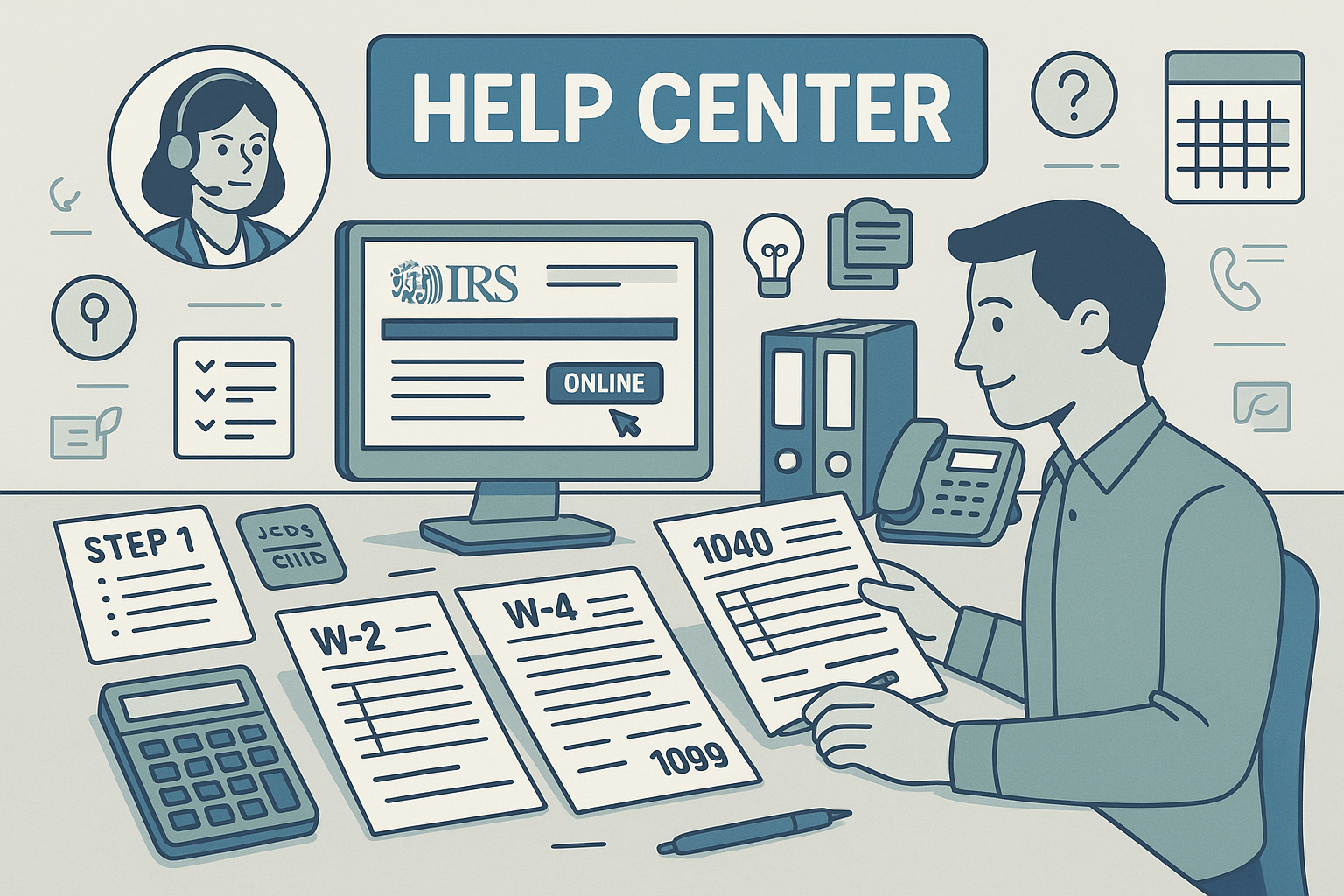 IRS Form Help Center
IRS Form Help CenterThe IRS Form Help Center welcomes you with resources designed to simplify the often-confusing filing of federal taxes. It provides clear explanations of forms, instructions, and deadlines so taxpayers can understand every requirement without stress. Whether you need a single form or step-by-step guidance, the center offers structured assistance. This helps you approach tax season with confidence rather than uncertainty.


 IRS Collection Process
IRS Collection ProcessThe IRS tax collection process represents a systematic series of enforcement actions designed to collect unpaid federal taxes from individuals and businesses who have outstanding tax liabilities. This comprehensive process begins after the IRS has assessed taxes through filed returns or substitute assessments and continues through escalating collection measures until the debt is resolved, satisfied, or determined to be uncollectible. Understanding each phase of the collection timeline, your rights as a taxpayer, and available resolution options is crucial for protecting your assets and achieving the most favorable outcome possible.


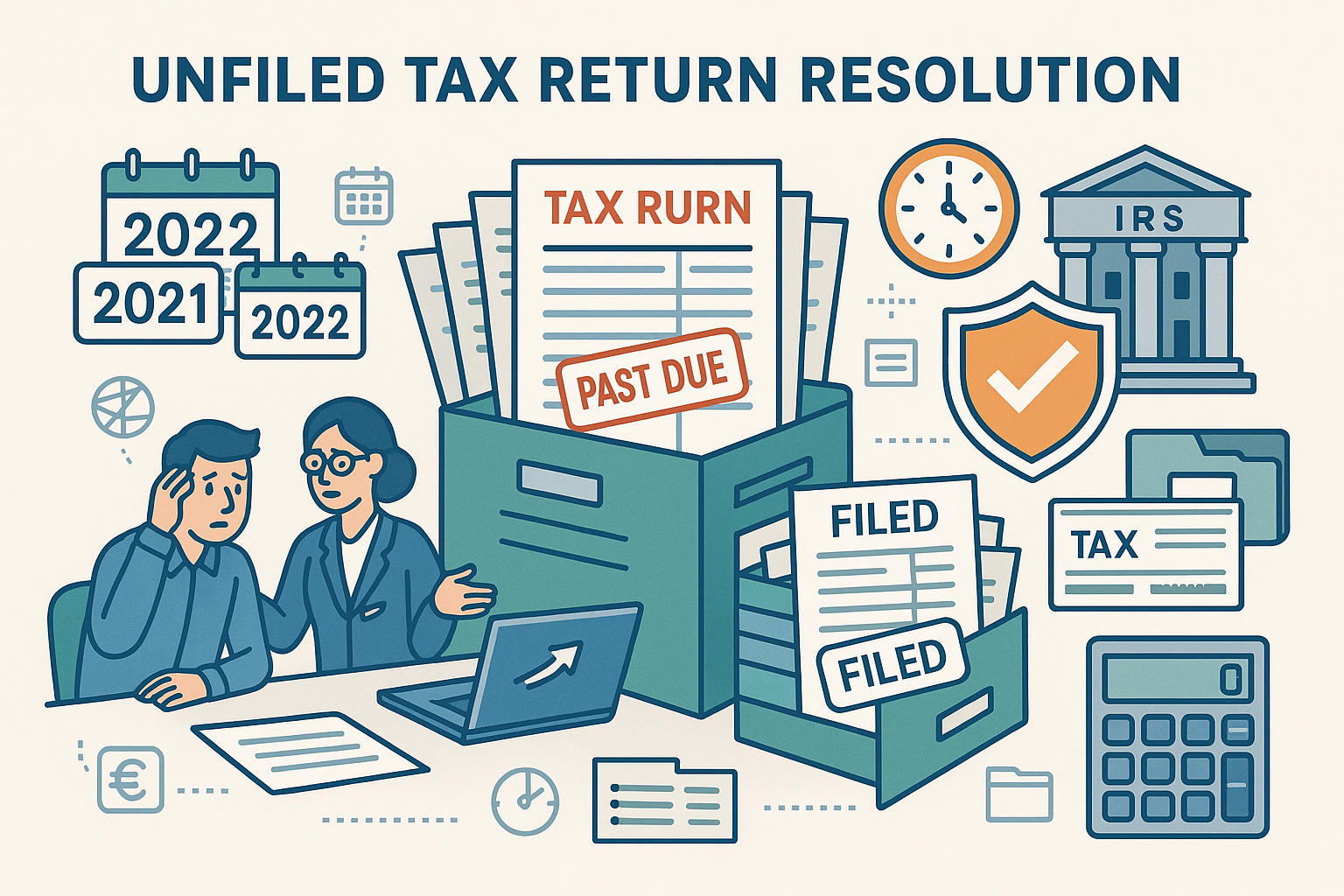 Unfiled Federal Returns
Unfiled Federal ReturnsMany taxpayers struggle with an unfiled tax return from previous years due to financial hardship, health problems, or the overwhelming nature of tax forms and paperwork. Unfortunately, delaying action only worsens the situation dramatically. The Internal Revenue Service can impose severe penalties and interest, file a substitute return on your behalf, or even begin aggressive collection process actions against your bank account, wages, or Social Security retirement benefits.


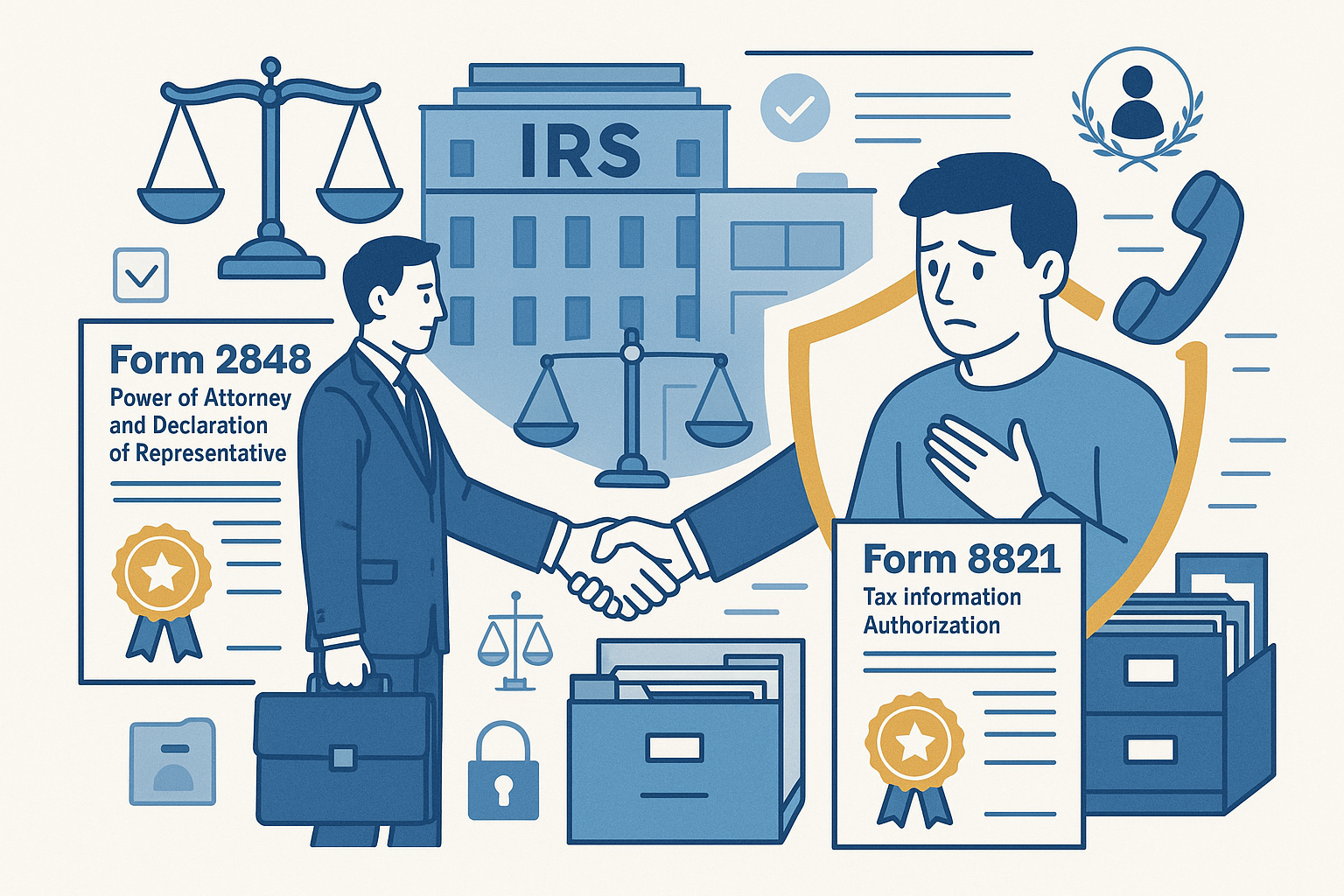 IRS Power of Attorney
IRS Power of AttorneyThe IRS Power of Attorney is a legal document that allows someone to act for you in tax matters. It matters because it ensures a qualified professional can communicate with the IRS on your behalf. This authorization protects your rights during audits, disputes, or official reviews. Without it, you must handle every IRS interaction, which can be overwhelming.


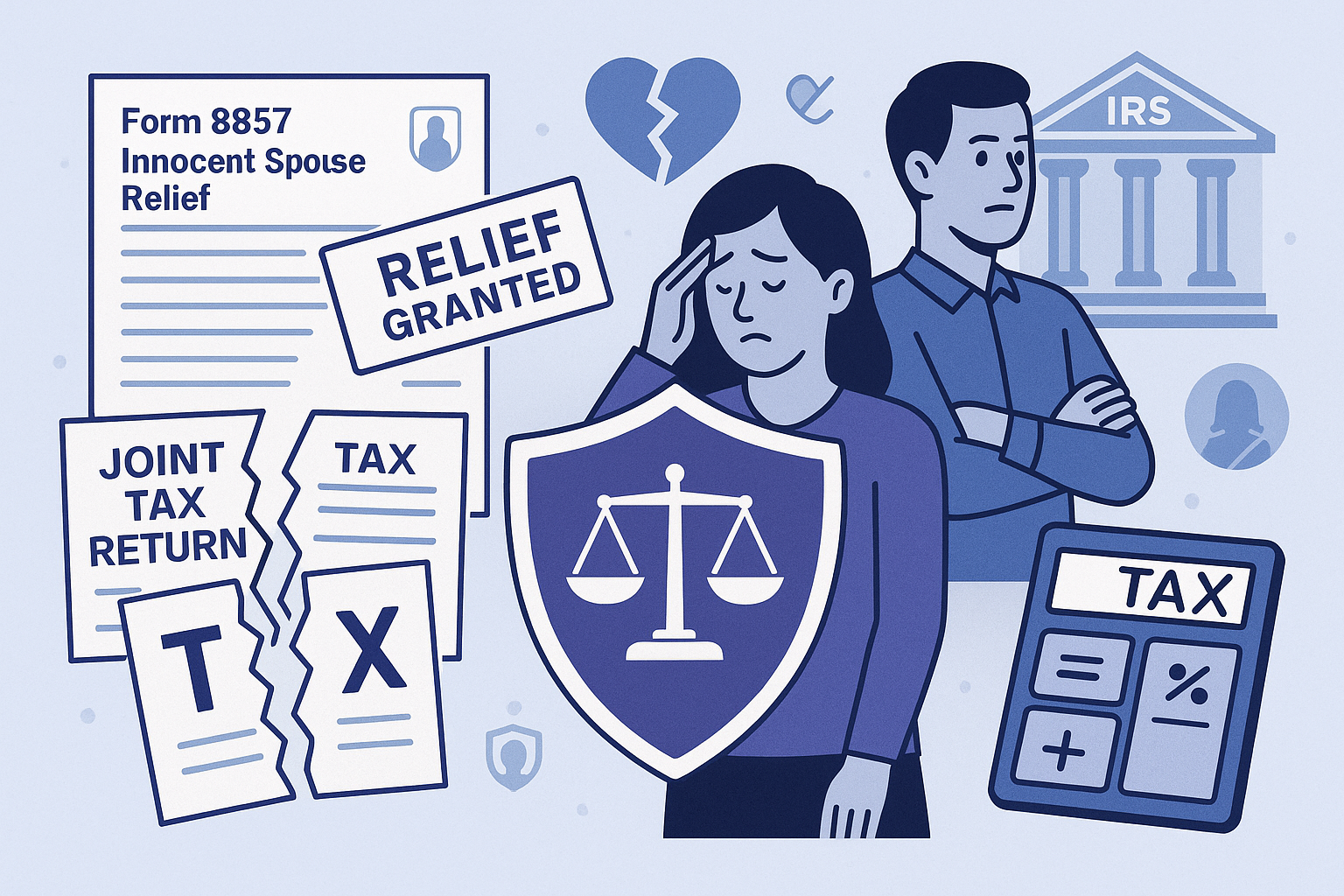 Innocent Spouse Relief
Innocent Spouse ReliefInnocent Spouse Relief protects taxpayers when they face unfair tax debt from errors on a joint return. It prevents one spouse from carrying the entire responsibility for unreported income or incorrect deductions created by the other. Many taxpayers request innocent spouse relief because the IRS recognizes that fairness is critical in joint liability cases. The program ensures innocent spouses have a path to challenge being unfairly burdened by their partner’s financial mistakes.


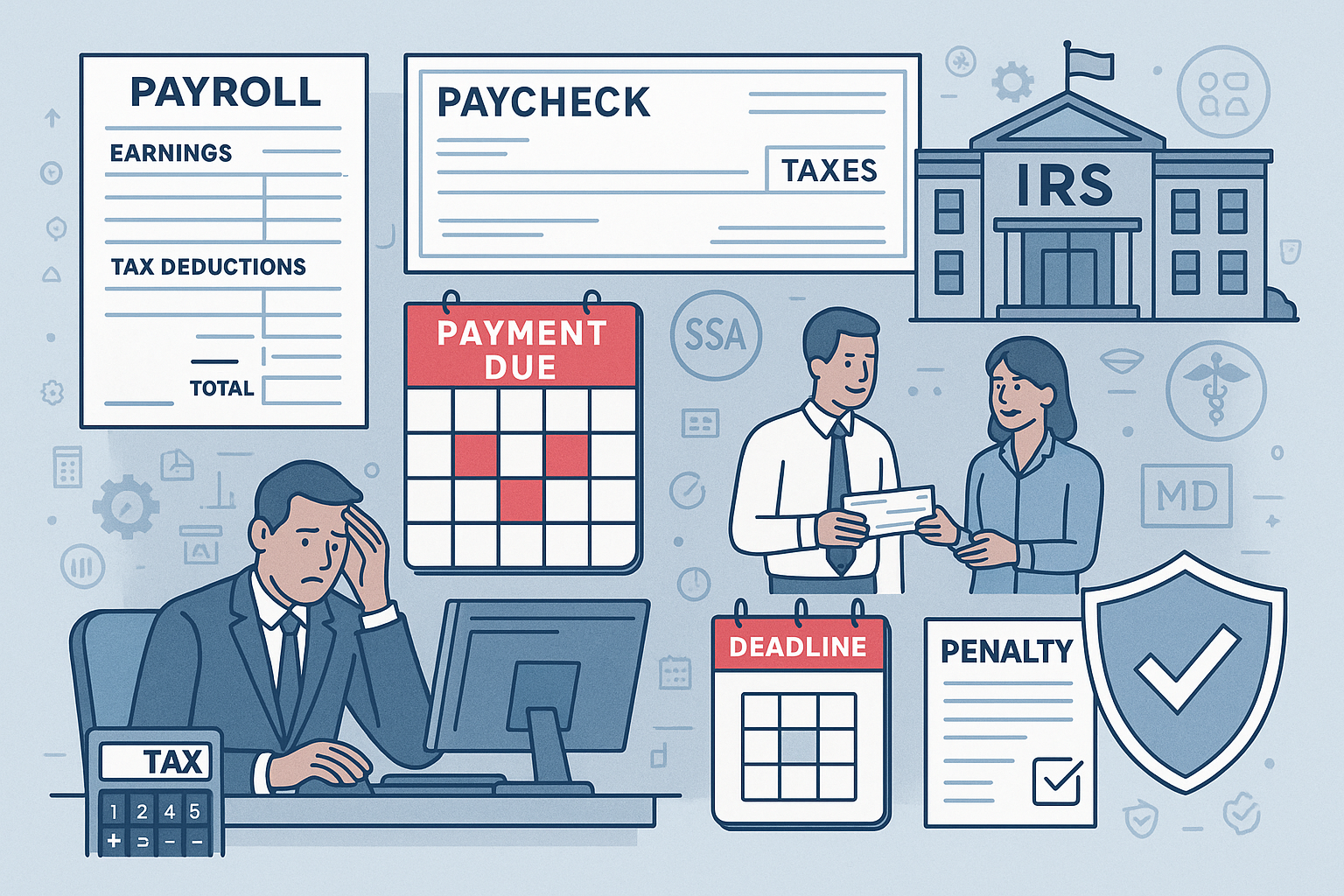 Payroll Tax Issues
Payroll Tax IssuesPayroll taxes are mandatory contributions employers withhold from employee wages to fund Social Security, Medicare, and unemployment programs. These taxes matter because they provide essential benefits that support workers during retirement, disability, or job loss. Employers must accurately calculate, withhold, and remit payroll taxes to avoid penalties and government scrutiny. Proper payroll tax management also builds employee trust, ensuring their contributions are credited correctly to government programs.


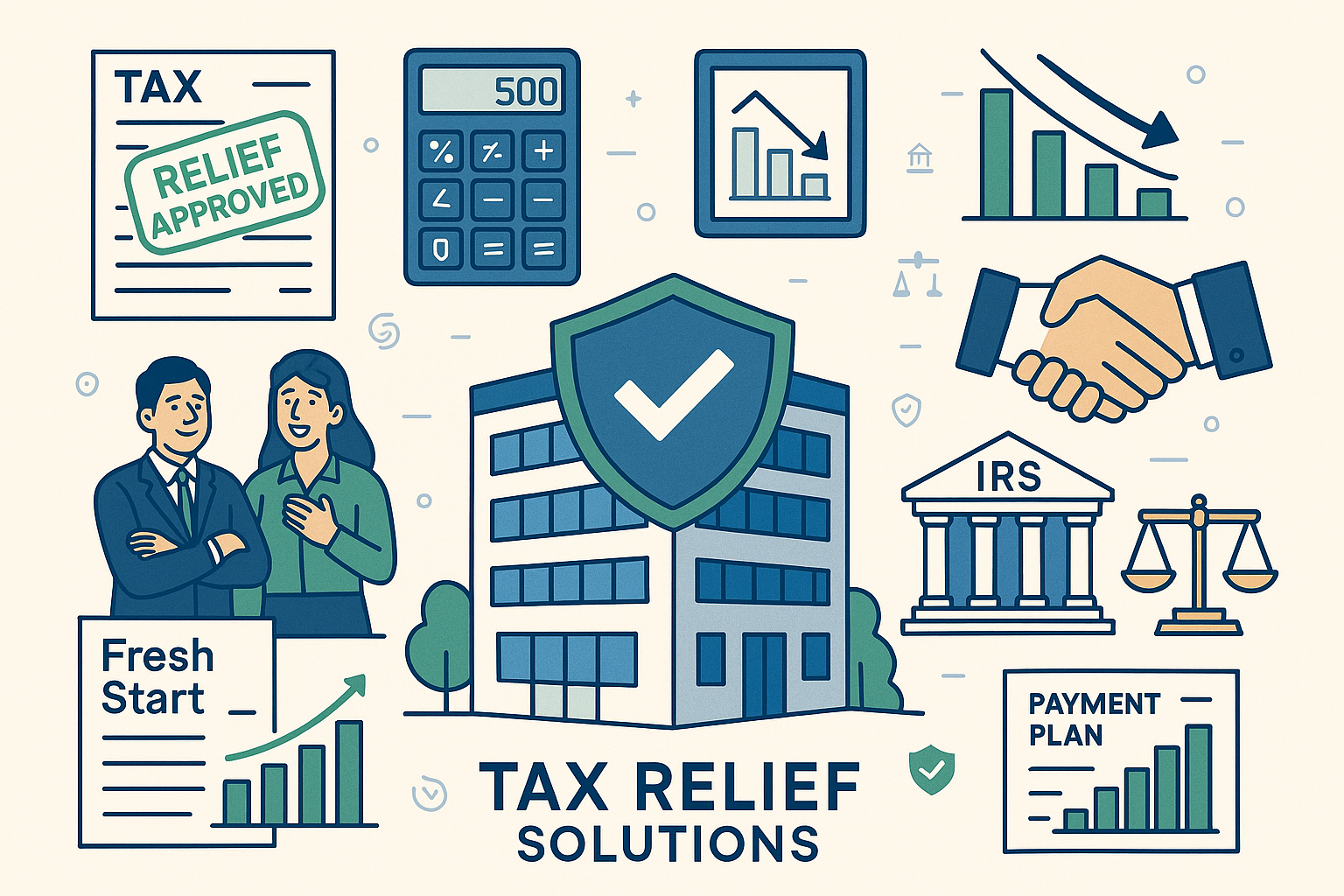 Business Tax Relief
Business Tax ReliefUnexpected penalties and overwhelming tax debt create severe problems for many taxpayers and businesses facing financial obligations. As interest and collection activities continue relentlessly, an escalating tax bill balance can lead to devastating financial hardship, restrict credit availability, and heighten operational stress dramatically. Ignoring these critical issues worsens them because penalties and interest accumulate rapidly over time. Fortunately, the IRS and state agencies provide comprehensive tax relief services to qualified taxpayers who qualify for penalty relief, settle outstanding balances, or meet eligibility requirements for structured payment plan arrangements.


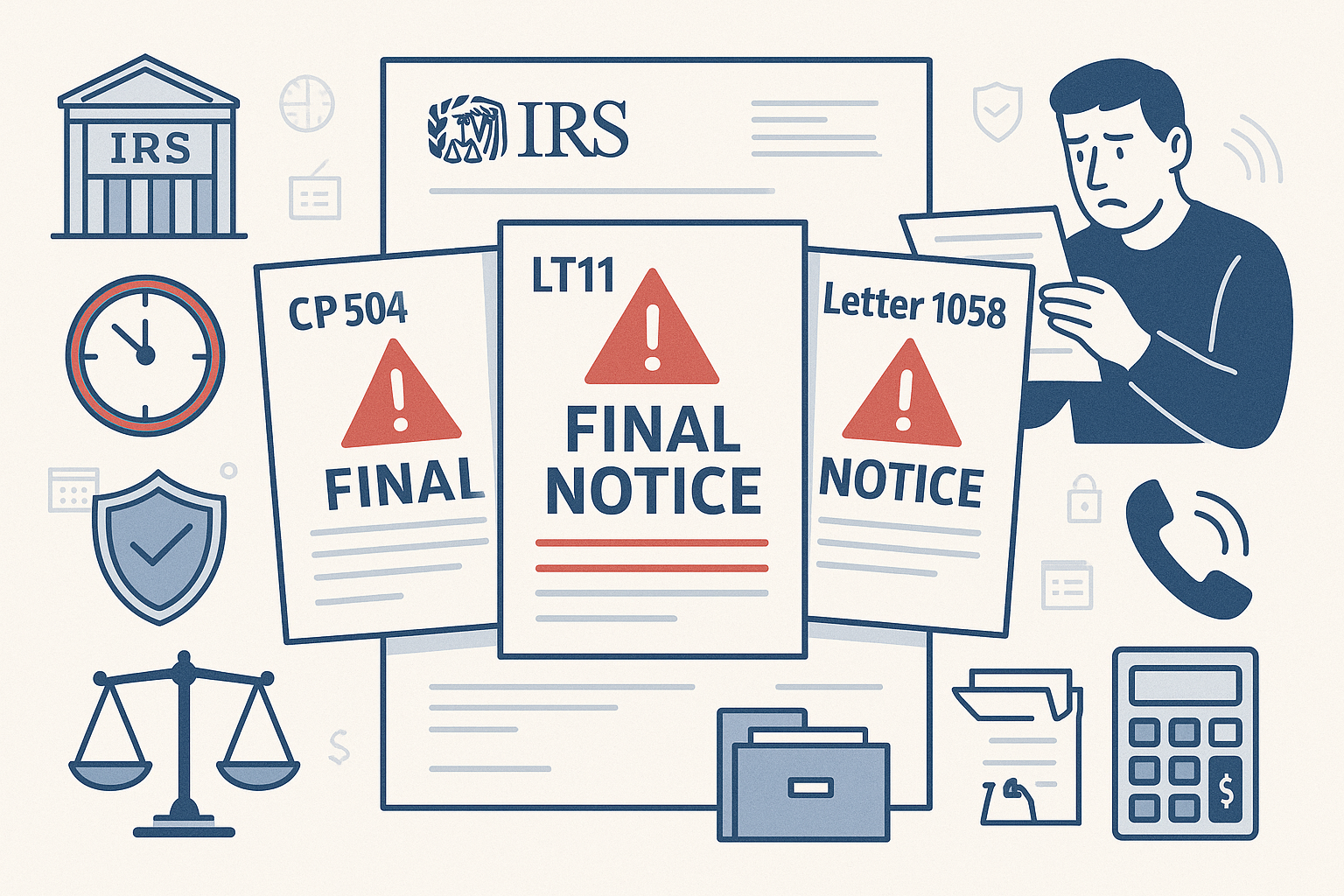 CP & LT Notices
CP & LT NoticesIRS CP and LT notices are official letters that the IRS sends to taxpayers about their accounts. These notices highlight unpaid balances, unreported income, or discrepancies between tax returns and IRS records. Each notice has a code, such as CP504 or LT11, which signals a specific tax problem. Understanding the notice type helps taxpayers determine the seriousness of the issue and possible IRS levy actions.


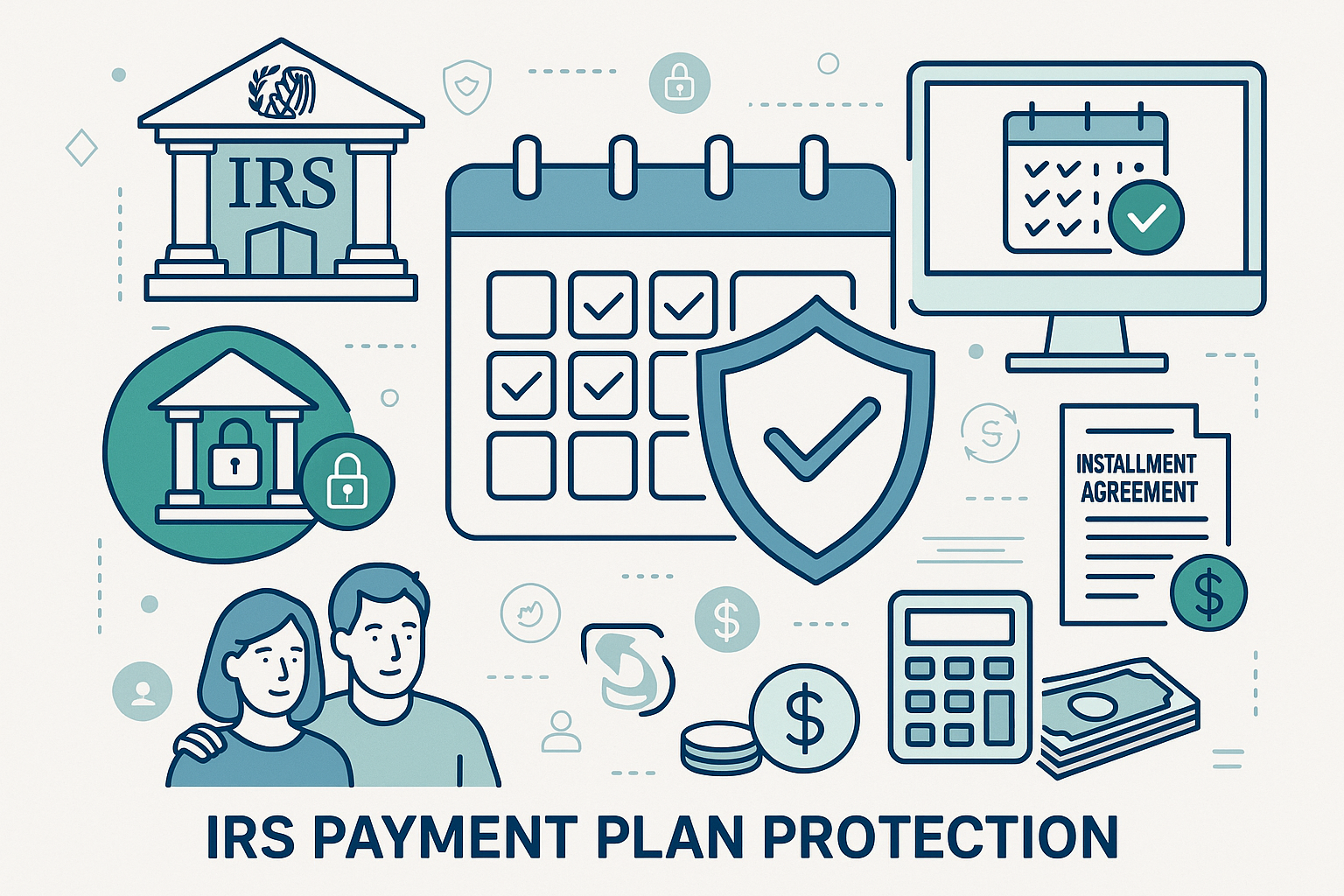 IRS Payment Plans
IRS Payment PlansAn IRS payment plan can be your strongest defense against bank levy actions when facing outstanding tax debt. Unlike traditional collection methods, establishing a payment plan with the Internal Revenue Service creates legal protection for your bank account while allowing manageable monthly payments toward your tax obligations. When taxpayers understand their payment plan options and act quickly, they can preserve access to essential funds needed for basic living expenses while resolving their tax debt through structured installment agreements.


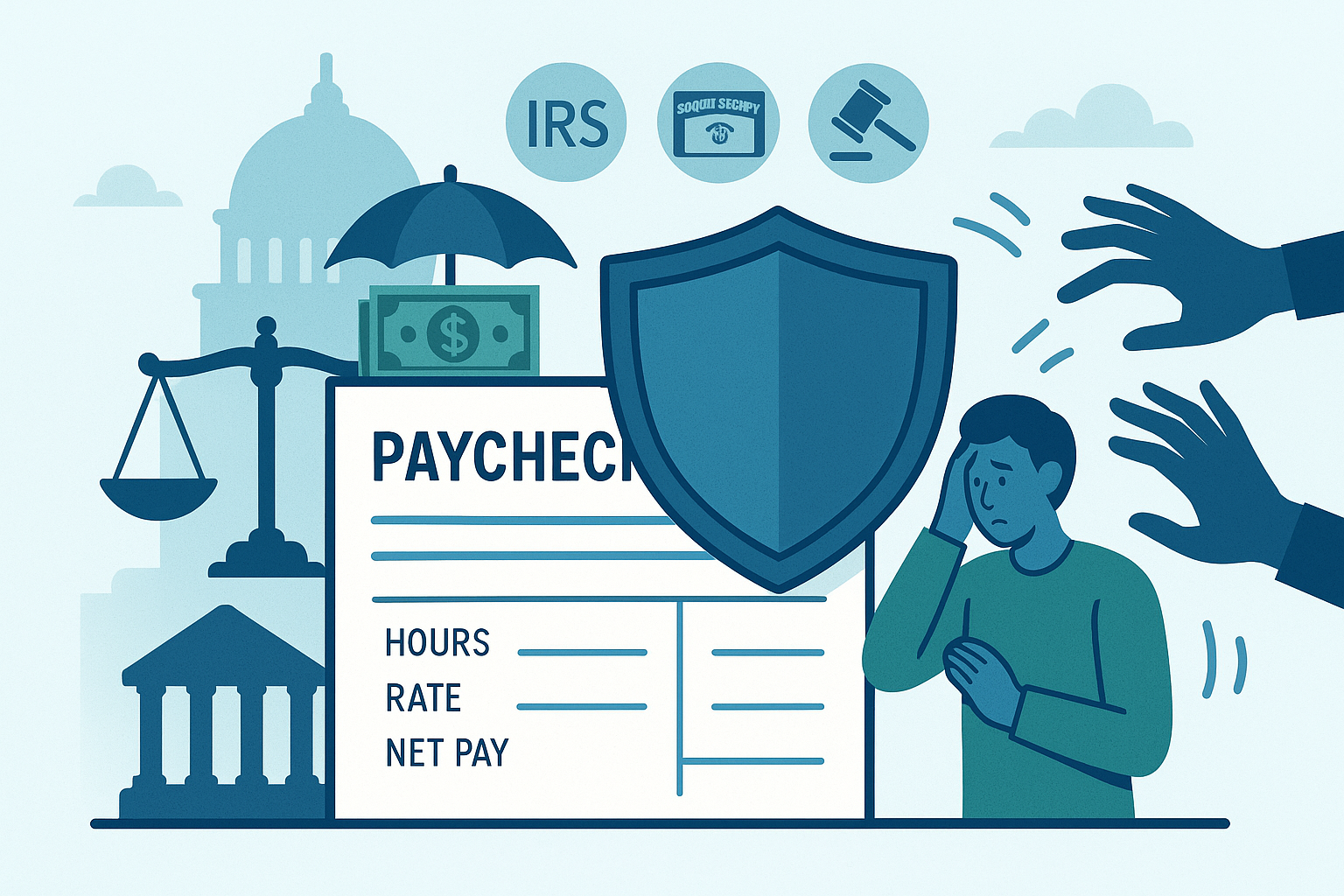 Wage Garnishment Protection
Wage Garnishment ProtectionA wage garnishment is a legal collection process that allows creditors and government agencies to withhold money directly from your paycheck to satisfy unpaid taxes and other debts. When you face potential wage garnishment from the IRS, Social Security Administration, or other creditors, understanding your protection rights and available relief options can save your financial stability and help you maintain essential living expenses. The federal government recognizes that qualifying taxpayers may face circumstances that make full payment impossible, making garnishment protection essential for achieving a fair resolution of outstanding tax debt and other financial obligations.


 Bank Levy
Bank LevyA bank levy is one of the most serious collection actions the Internal Revenue Service (IRS) can take against taxpayers with outstanding tax debt. Unlike a lien, a legal claim against your property, a bank levy involves the legal seizure of money in your bank account to satisfy unpaid taxes or other outstanding debt. When you face a potential bank levy from the IRS, a judgment creditor, or another debt collector, understanding your protection rights and available relief options can help safeguard your financial situation and maintain access to essential funds in the account needed for basic living expenses.


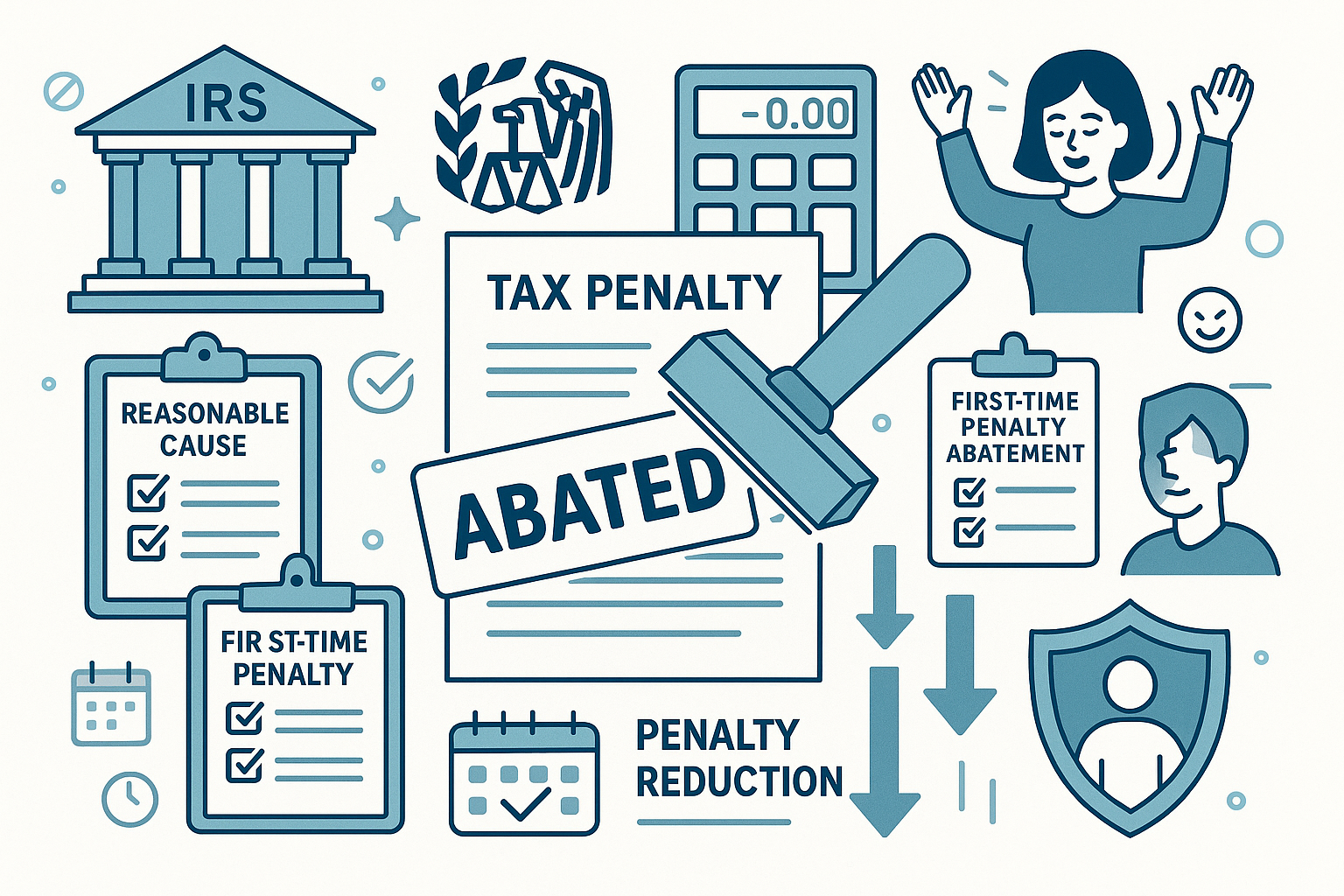 IRS Penalty Abatement
IRS Penalty AbatementAn IRS penalty abatement is a taxpayer relief program that allows qualified individuals to request the removal or reduction of tax penalties assessed by the Internal Revenue Service for various compliance failures. When you owe taxes and face penalty assessments, understanding your options for penalty relief can save thousands of dollars and help resolve your tax liabilities more effectively. The IRS recognizes that qualifying taxpayers may face circumstances beyond their control that prevent timely compliance with tax obligations, making penalty abatement essential for achieving fair resolution of federal tax matters.


 IRS Offer in Compromise
IRS Offer in CompromiseAn IRS Offer in Compromise can be your strongest defense against overwhelming tax debt when facing tax liability you cannot afford. Unlike traditional collection methods, establishing an offer in compromise with the Internal Revenue Service creates a legal resolution for your tax debt while allowing you to settle for significantly less than the full amount owed. When taxpayers understand their compromise program options and act quickly, they can preserve access to essential funds needed for basic living expenses while resolving their tax bill through structured settlement agreements.


Taxpayers who receive a notice may request relief if they provide an explanation showing reasonable cause for late filing or payment. Options include First Time Abate relief or demonstrating hardship when full payment cannot be made. Some services are free, such as accessing forms online or contacting the Taxpayer Advocate Service. Local IRS offices may also help taxpayers understand obligations and available relief programs in Minnesota and other states.
The Internal Revenue Service may hold responsible persons accountable when businesses fail to remit withheld federal income tax. These individuals may include officers, partners, or bookkeepers with authority over financial decisions. Liability equals the total amount owed and can extend to estates. Clear documentation and accurate reporting are necessary to avoid such responsibility. Each party involved must note its duties and act responsibly to ensure compliance.
Records supporting Form 945, including deposit confirmations and employer identification number documentation, must be retained for at least four years. These include details on nonpayroll payments, gambling winnings, and governmental section distributions. Organized files help demonstrate compliance if questions arise. Keeping thorough records provides evidence for employers and living estates, protecting them from disputes while ensuring withheld funds are correctly reported to the Internal Revenue Service.
If Form 945 is filed late, the Internal Revenue Service may assess additional charges depending on how long the return is overdue and whether any balance remains unpaid. Filing late also increases the risk of accruing interest on amounts owed. Employers and responsible persons should file promptly, even without full payment, since timely filing reduces the severity of costs compared to filing and paying late together.
Taxpayers may file Form 945 electronically through the IRS Modernized e-File system or mail it to the correct processing center. E-filing offers faster confirmation and easier recordkeeping. Mailing remains available for those preferring paper submissions, though deadlines must be carefully observed. The annual return must accurately report withheld amounts from nonpayroll payments and include the correct employer identification number, whether filed electronically or by mail.
Form 945 reports federal income tax withheld from nonpayroll payments, including government payments and retirement plan distributions. Form 941 covers employment-related withholding, such as wages and Social Security contributions. The distinction lies in the type of payment reported and the filing schedule. Form 941 is filed quarterly, while Form 945 is filed once each year, making careful separation of reporting obligations essential for compliance with Internal Revenue Service requirements.
Form 945 is required only if federal income tax was withheld from nonpayroll payments such as annuities, gambling winnings, or governmental section distributions. If no such withholding occurred, filing is not required. If amounts were withheld and not reported, the annual return must be submitted. Filing on time ensures accurate records and prevents complications for businesses and individuals responsible for managing federal tax obligations.
IRS resources include a notation showing when the page was last reviewed or updated, ensuring individuals always know the information is accurate. Employers should visit the IRS site directly, rather than third-party sources, to find the most reliable details. People preparing Form 943 at home can confirm they have the correct version of the tax return, reducing mistakes and protecting compliance. Regular review of IRS updates helps maintain proper filing practices.
Yes, employers can access IRS resources that provide free guidance for individuals preparing Form 943. These resources explain how to calculate federal income tax withheld, determine Social Security and Medicare amounts, and complete the required pages. People who visit the IRS Form 943 page will find regularly updated instructions to ensure accuracy. Accessing support at home helps employers file with confidence while meeting their tax obligations to the Internal Revenue Service.
Yes, seasonal employees are included when calculating whether an employer must file Form 943. If wages for individuals meet the $150 requirement or all wages reach $2,500, the employer must submit a tax return. Even short-term labor must be reported. Employers can visit the IRS Form 943 page, which is free to access and regularly updated for accuracy. Seasonal employment rules are published for temporary workers, and employers should confirm these details on the IRS Form 943 page.
Our priority, and we're committed to offering thorough responses to ensure you have the information you need to move forward with confidence.